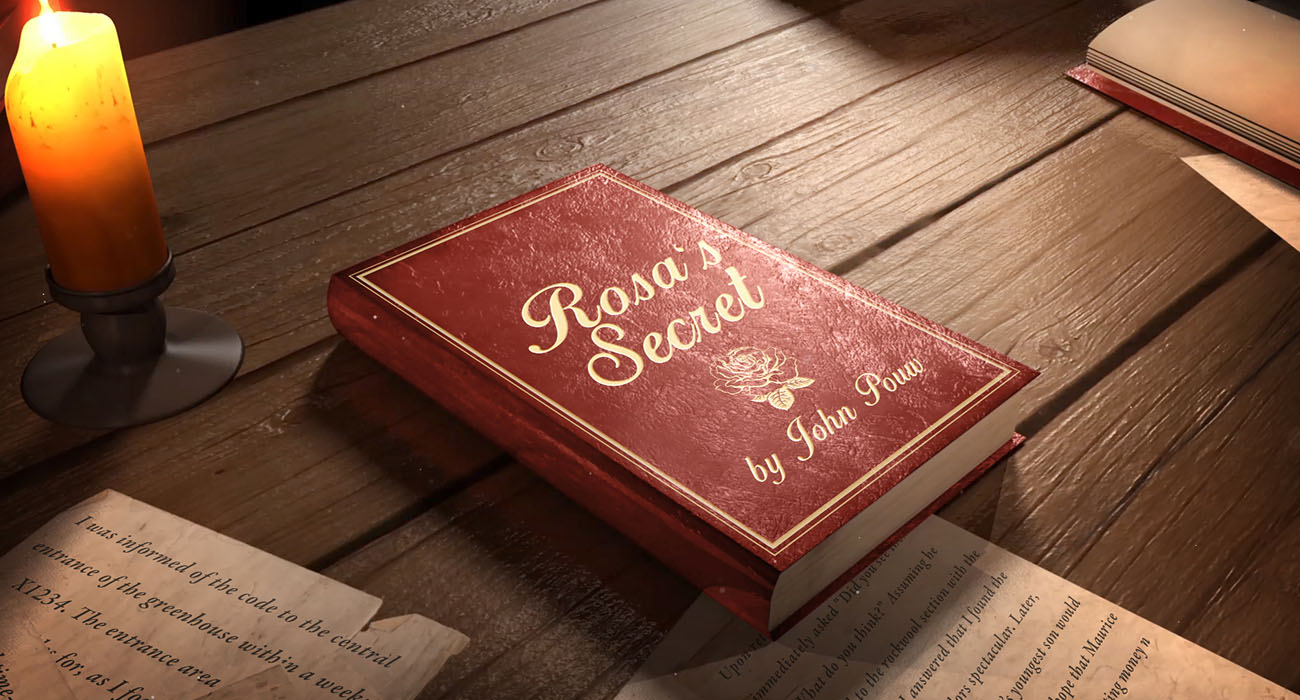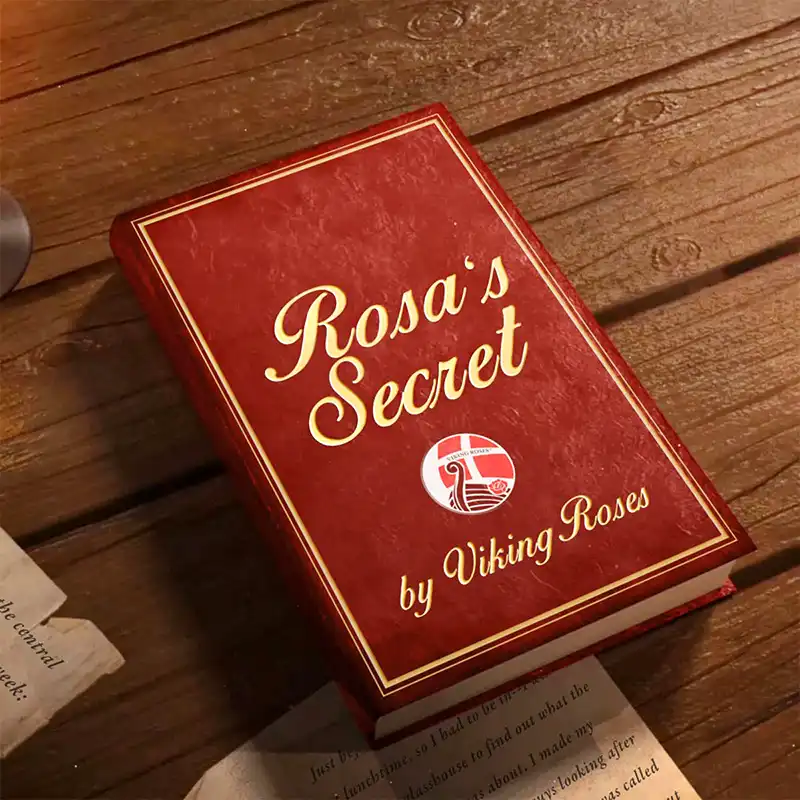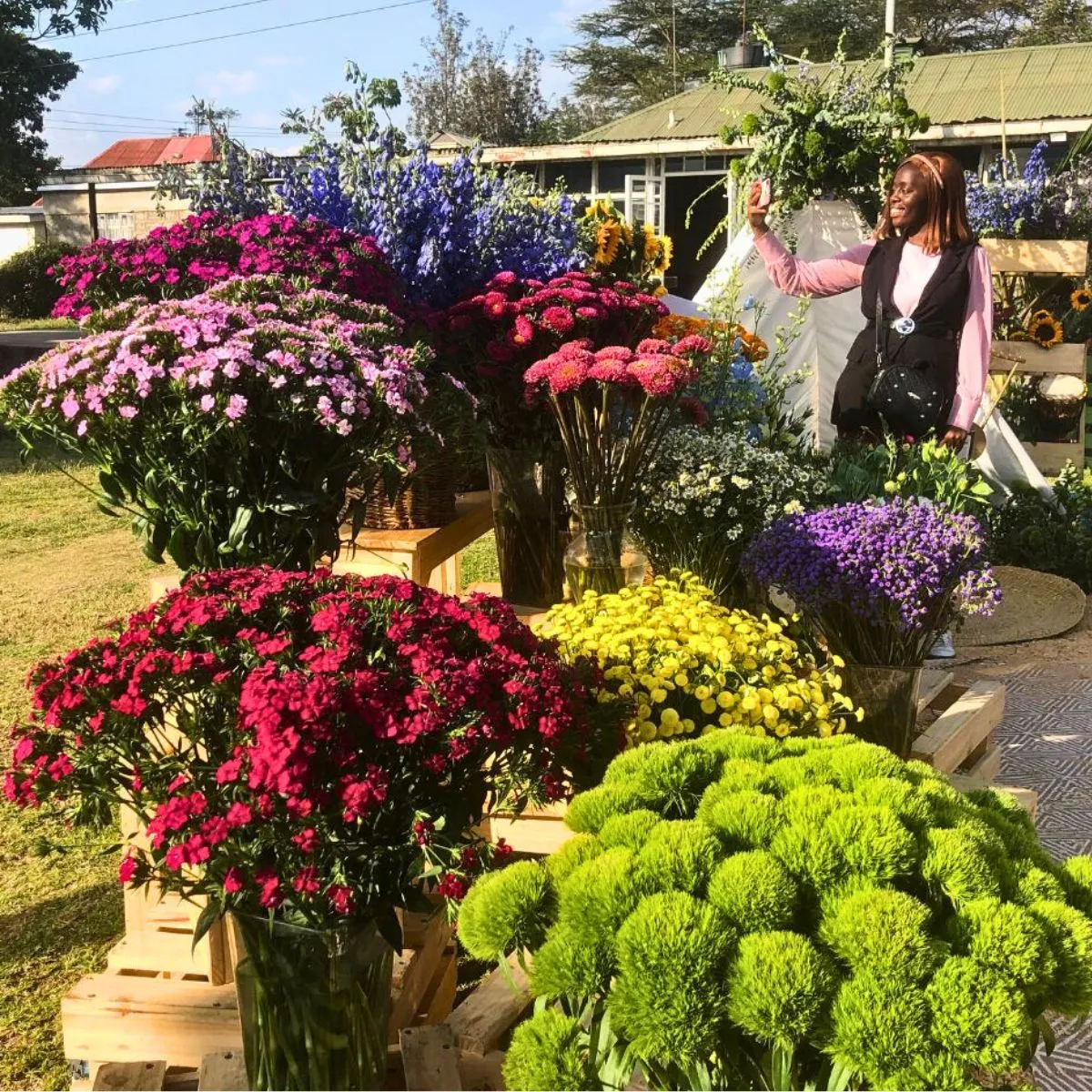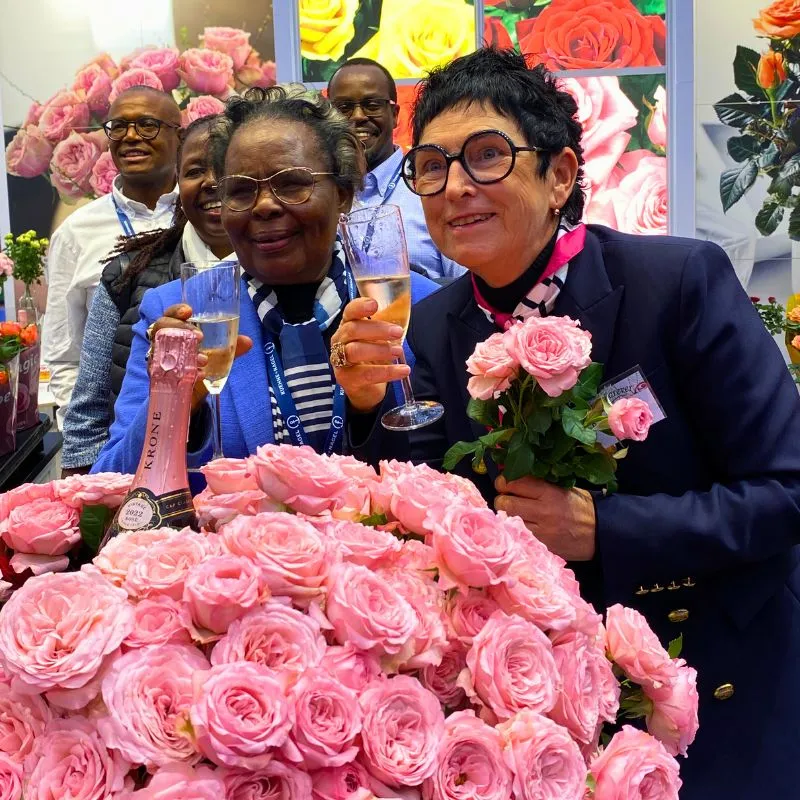A few months after my start with Witte de Wit, the twins sold the business to Big Anton, at that time their biggest customer. Anton was big, in every aspect: body, house, car, business, appetite of all sorts. In the final takeover meeting with the twins he would take a break and go into the greenhouse. His General Manager Sjef would continue the discussion on the conditions and went to look for Big Anton to decide on their reaction to the asking price of fourteen million guilders. He found Anton disbudding the flowers, taking off all the side shoots, so that all the plant’s energy would go to the sole flower left. “Anton, what is your price?” “Price for what?” Anton replied. “The takeover price for the company, you idiot.” “Let’s take it down to ten,” Anton suggested. “Why ten?” Sjef wondered, “How do you estimate the value of a breeding company?” “I don’t know, I like round figures. You know, they should pay more attention to the disbudding. And why are the heads so small?”
It took the twins two minutes to accept the offer.
To introduce Big Anton as the new owner and myself as commercial assistant, my second business trip took us north to the Danish pot rose clients. Since Anton was a big pot rose producer, his Danish competitors had now become his clients as a breeder. It was expected that the Danes would be very critical of this. Our Danish agent, Jorgen Stach, had organized a special lunch for the occasion. Alcohol also dissolves criticism. Father Dré’s old friend Svend Egede would bring samples of the new Witte de Wit varieties he was testing for us.
We left after Father Dré finished breakfast, complete with shopping bag from Mother Sien and bags of coins from Maurice. Father Dré cherished the first bag, but grumpily quickly handed the others to me. Holding lots of change, I ended up with a big Danish bump in the left pocket of my jacket and German on the right, for the balance. Despite being the new owner and a heavy smoker, Big Anton obeyed the non-smoking sign in the Volvo. With Father Dré stuck to the driver’s seat, I seized the opportunity. “How does the royalty system for pot roses work, Dré?” Anton liked the question: “Yes, Dré, tell us why we always had to pay so much and why every month you were checking on us. I suppose that now is no longer necessary. I will miss Piet. I think he should keep coming anyway.”
Dré reacted to the last part first. “I think it is wise to keep production and breeding separated, so you know exactly which company is generating what income. Also we must explain the Danes that, although he owns Witte de Wit, Anton will still continue to pay royalties for his production.” Anton did not really like this. With an annual production of some ten million pots, his anticipated first return on investment was a cost reduction of ten cents per pot. “In the end, it comes down to the same,” Father Dré argued. “But still,” Anton must have thought.
“Since pot roses are made from cuttings and these cuttings come from the plants when they are trimmed back, it is necessary to have insight in the production figures of the clients. Royalties are paid per pot and subjected to quantity discounts. For mutations it is different.” Earlier, Piet had explained the role of the propagator in case of cut roses, where royalties were charged on the plants delivered to the clients. I quickly made some notes. When I finished, I asked about mutations. I was lucky that the twins were systematic in their answers. Mutations seemed to be the ultimate breeder’s comprehension test. “A mutation basically is a spontaneous color difference in an existing variety. Its stems can be propagated and the color does not change back to the original color. According to UPOV, the finder of a mutation becomes its owner.” Anton and I formed a chorus: “Dré, who is UPOV?” “UPOV is the organization that draws up the breeder’s rights legislation and its member states, like Holland, can ratify a certain version of the law. According to UPOV 1986, signed by Holland and most other western European countries, the finder of the mutation is the owner.” Anton felt robbed when he realized that “in effect then all pot rose mutations that we handed over to you in the last couple of years, were our own!” “No, no,” Dré quickly reacted, “in our license agreements we have the principle of a shared ownership, and at the time you agreed to 20%.” The damage was done, no matter what explanation. Big Anton felt cheated on and lit a cigarette to calm down.
I was confused. “How can you have something in a contract that in fact is against the law?” “The principle of a shared ownership,” Gijs replied, “was the outcome of a case that was brought before the European Court by Groupe Ferry, who disagreed with the fact that René Césaire, the Secretary General of CIOPORA and part-time rose grower, found a mutation in Sonja and had it protected. Since then, most breeders have included this principle in their contracts.” I understood, thank God. “But still, I do not think it is fair, Dré. The breeder does all the work and the grower by accident finds a mutation.” We agreed, although we lost Anton in the process. He must have wandered off with Sonja. I found out later, that it was Anton who selected the salmon-colored variety at Groupe Ferry in France, pulled out his acclaimed white carnations upon his return to grow the rose variety instead. For years, Alain Ferry would bring international growers to see Big Anton’s Sonja.
Now, his first trip as a breeder started badly. First, he had to continue to pay royalties for varieties that now were his own and, what felt worse, this old man and his twin brother had robbed him of his mutations earlier on. That night, walking along the road outside Odense, he added, “and then they made me pay ten million for them.”
We had a coffee stop in the Bremen area earlier on. That is, Anton and I went in the restaurant, but Father Dré stayed in the car, opening Mother Sien’s thermos with milky coffee and plastic container with crackers. “I’ve got a weak stomach, and the coffee in restaurants is far too strong for me.” He handed me a fifty Deutschmark bill. “We probably don’t need that”, I said, rattling the bag in my right pocket.
Outside Hamburg, we stopped at Von Bismarck, where Wilhelm showed us their brand-new packing line for garden bushes and even opened up their breeding house for us. No entry code was needed to enter the secret domain of “Europa’s Großte”, as their posters and letter head read. “Dré knows, but let me tell you the history of the Von Bismarck company”, Wilhelm started when coffee was served in the prize room. “My grandfather started 120 years ago with the propagation of garden roses and soon started his own breeding program.” He pointed to grandfather’s portrait and some impressive looking trophies. “He had three sons and decided that the company’s shares would be equally shared between the three and stay with the three lines also in the future. Each line would also appoint one person for the company’s management. Today, Bernhard is a director on behalf of the line of his father-in-law Wilhelm, after who I was named. Bernhard is married to my cousin Greta and does most of the traveling. My father Reiner is the only of the three brothers left and has passed on the directorship to me. I am responsible for the breeding and administration. My father is slowly turning blind with a hereditary eye disease. Franz-Hermann is responsible for the propagation and domestic sales of the garden varieties. His father died very young.”
Anton had never met Wilhelm before, but “Bernhard Solf is a real Mof”, he whispered at the Odense roadside that night. Although Anton was a post-war child, the stories of his elder brothers qualified him to use this Dutch name for the Nazi occupiers. Father Dré had insisted of booking rooms in the Motel Brasilia, close to the highway, but far away from the city center, so that after the dinner, with Father Dré gone to bed punctually at 9 p.m., the only entertainment was a walk along the road leading to Odense center. Anton had overcome his mistrust of the twin robbers and we laughed about Father Dré struggling with the bones in his sole during dinner and leaving Von Bismarck’s coffee untouched in the afternoon, but eating all the cookies.
After the 8 a.m. breakfast we left to visit Skjoldvang, a producer that Father Gijs had visited for more than ten years. The place was impressive, with robots all over the place, moving plants from one table to the next, moving the tables in the mist houses and to other sections afterwards, cutting the plants and collecting the cuttings for new plants. The sticking of these cuttings in the pots was done by hand, in a special room filled with music, women and posters of rock singers and film stars. “Today we are only producing Feminis,” the general manager explained. “It is a matter of calculation,” he continued, “at fifty per cent royalty we are very cost efficient and the quality difference with your Rosaminis and Minimos is minimal.” The robbers were back in Anton’s eyes. He did not speak any English, but understood enough. He stayed out of the conversation, looking very unhappy. Skjoldvang had been hunting for mutations and developed their own series.
Anton never came back to the subject of mutations, not even when it turned out that two Dutch cutrose producing brothers received eighty per cent of the royalties of the best-selling dark red cut rose Icon® that came out of Witte de Wit’s orange red Eva®. Whenever a new mutation was reported, Sjef was called in to negotiate the shared ownership with the finder.
We returned to the motel to meet with our agent and prepare for the lunch meeting with the clients. Stach’s English was fluent. He was to deliver a speech in Danish to introduce Big Anton and myself. The message would be that although owning the breeding company, Anton’s Potrozen B.V. would not have a first pick and would also be obliged to pay full royalties. After that, there would be room for questions and Stach would bring out a toast. After lunch, the clients would have the opportunity to see the new selections in the adjacent room. That morning, Svend Egede had brought in the plants. There was no discussion about Stach’s proposal, so we had a quick look at the new varieties. I was impressed. This would be a big hit. Stach would apply for Danish breeder’s rights instantly.
That evening Father Dré informed us during dinner that Stach told him that Witte de Wit’s market position had dropped by twenty per cent in the first quarter. Stach, whose role was purely administrative, had no explanation and neither had Father Dré. Since we would be driving back the next day, there was no time to investigate.
Six growers showed up for lunch, out of the expected ten. But then, everybody was busy in preparation of Mother’s Day. Most of them were old friends of Father Dré. One grower was new. He did not grow any Witte de Wit varieties. Everything went as planned. Stach’s presentation obviously was very clear. There were no questions. After the toast to old and new friends, the clientele attacked the food and especially the drinks. Danes were a thirsty bunch, even at midday and seemed to have things well organized for Mother’s Day, for there was no rush at all. After three hours, people started to leave and getting into my professional role, I maneuvered them into the adjacent room. Suddenly time was short, but for politeness’ sake, they had a quick look. Expressing my disappointment to Father Dré afterwards, he guessed that they no doubt had already seen the varieties at Svend’s. Danish growers are very open and often visit each other.
We packed and, taking the samples with us, drove to Svend Egede’s nursery at the end of the afternoon. Father Dré and Svend Egede were old friends. Svend was the inventor of the pot rose and had persuaded Witte de Wit to concentrate their breeding on this. His nursery was a shambles. I had brought a list of the varieties he should have on trial, but could only find back half of them. The quick coffee in the farmhouse was even more disconcerting. Svend left us with his wife to make the coffee. Mrs. Egede smelled of alcohol, slurred incomprehensibly and clung to Father Dré as a life belt in a wild storm, which no doubt is how she experienced her surroundings. It took ages for Svend to come back with coffee, including Father Gijs’ half-half recipe to which he added six lumps of sugar. By that time, my stomach was in a big knot with sea sickness of the whole situation. I left my coffee half-finished and so did Anton, urging Father Dré, who took his time to finish his prescription.
At Nilles Kro we turned out to have only two rooms. The thought of spending a night in one room with Father Dré instantly made the knot in my stomach return. Fortunately, Anton came up with the second-best solution and, thank God, there were two beds. I dragged one to the window and put the other next to the door. Anton enjoyed my activities. He had shared one bed with all sorts of people. Unfortunately, Danes like small rooms. I did not close an eye all night. Not that I feared that Big Anton was going to jump me, but time and again I thought he would die. Being a heavy smoker, stiff drinker and amateur of big fat dishes, anything could happen any moment.
In his sleep, he produced a cacophony of sounds: groaning, snoring, farting and then suddenly dead quiet, forcing me out of bed to have a closer look before continuing the serenade again. He slept well, and so did Father Dré, so the two of them could pick up memories of their trip to the United States a year ago, while I dozed off in the back of the Volvo.







